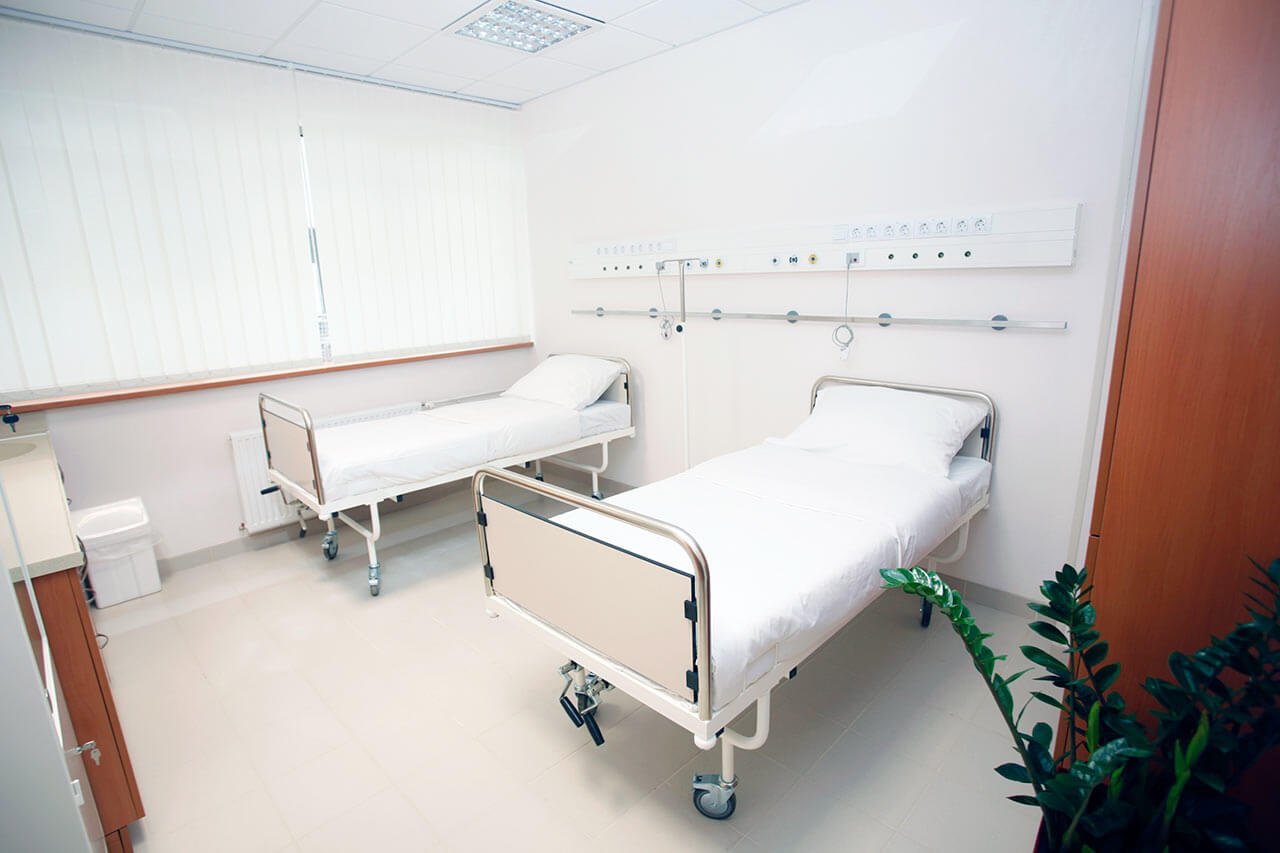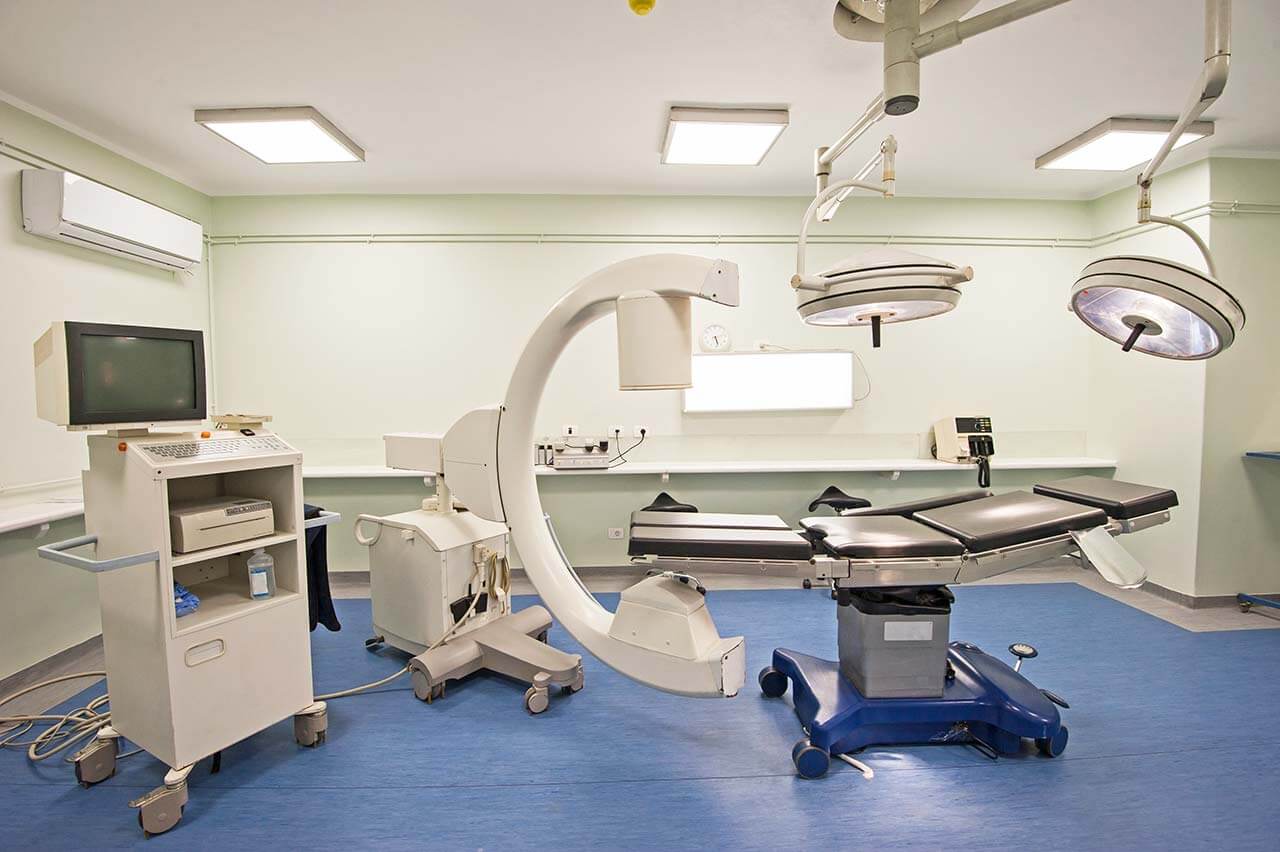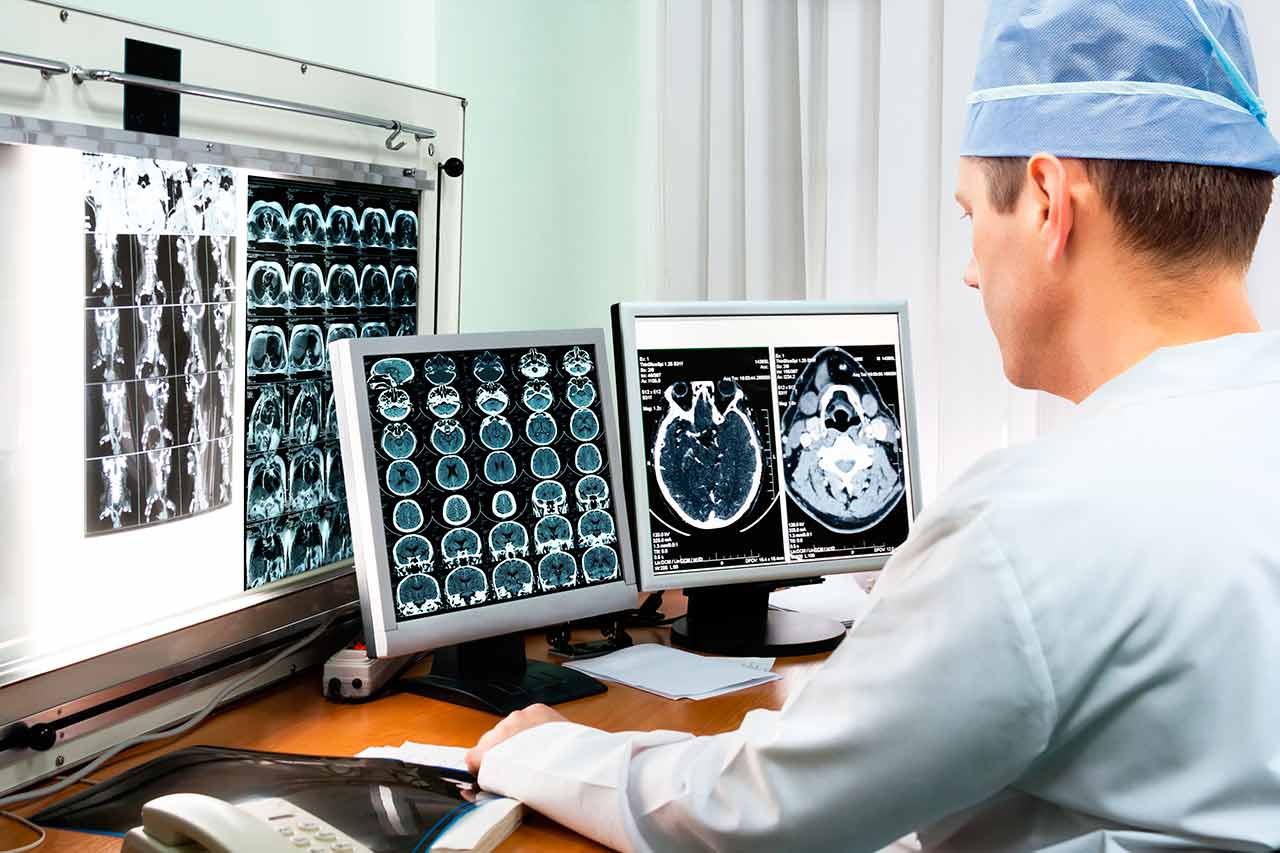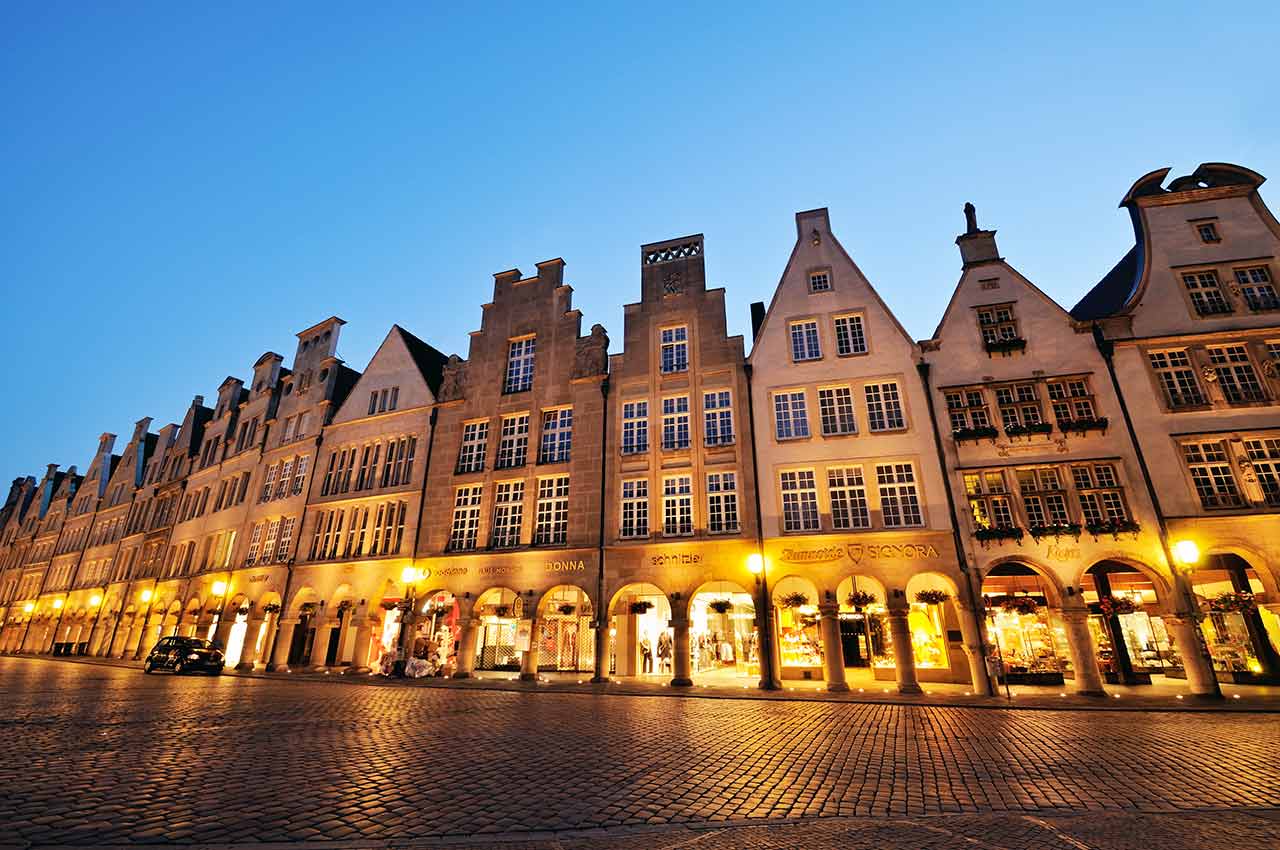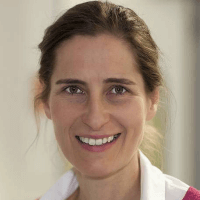
The program includes:
- Initial presentation in the clinic
- clinical history taking
- review of medical records
- physical examination
- laboratory tests:
- complete blood count
- general urine analysis
- biochemical analysis of blood
- TSH-basal, fT3, fT4
- tumor markers
- inflammation indicators
- indicators of blood coagulation
- orbital ultrasound scan
- CT / MRI / X-ray scan of the head and orbit
- 1 course of chemotherapy
- nursing services
- consultations of related specialists
- explanation of individual treatment plan
How program is carried out
During the first visit, the doctor will conduct a clinical examination and go through the results of previous laboratory tests and instrumental examinations. After that, you will undergo an additional examination, including laboratory assessment of liver and kidney function, ultrasound scan. Based on the received results, the doctor will elaborate the chemotherapy regimen. If necessary, related medical specialists will be involved in the elaboration of a treatment regimen (tumor board).
Chemotherapy is carried out as the day hospital procedure, without mandatory admission to the hospital. After the placement of a venous catheter, you will stay in a comfortable ward. An infusion system will be connected to the catheter, through which the required drug or a drug combination will be administered. All drugs are administered by intravenous drip, slowly, so the total duration of the infusion can be up to several hours. All this time, doctors and nurses will monitor your health condition closely.
After the course of chemotherapy, you will stay under medical supervision in the ward for a few more hours. If your general condition is good, your doctor will allow you to leave the hospital. You will receive the medical report with detailed recommendations regarding further treatment. In the future, you will be able to have a distant consultation with your attending physician and schedule the next course of chemotherapy, if necessary.
Required documents
- Medical records
- MRI/CT scan (not older than 3 months)
- Biopsy results (if available)
Service
You may also book:
 BookingHealth Price from:
BookingHealth Price from:
About the department
The Department of Pediatric Hematology and Oncology at the University Hospital Muenster offers the full range of diagnostic and therapeutic services in these fields. Over the years of successful clinical activities, the department has gained a reputation as one of the largest pediatric medical facilities of this kind in Germany. The department annually treats more than 1,200 inpatients and about 15,000 outpatients with oncopathologies and blood diseases. The department has stem cell transplantation program. The exceptional quality of the department’s medical services is confirmed by the German Cancer Society certification. The department is headed by Prof. Dr. med. Claudia Rössig.
Special attention should be paid to the productive research activities of the department. The department's specialists take part in all national and international researches on the optimization of the treatment of cancer and hematological diseases (within the Society of Pediatric Oncology and Hematology). In addition, the department implements large-scale international research projects for the treatment of patients with Ewing's sarcoma, germ cell tumors and non-Hodgkin lymphomas.
If conventional therapy does not yield positive results, the patients can participate in clinical trials. The goal of all clinical and experimental researches is to develop new cancer treatments in children and adolescents. In addition, the department’s tasks include the provision of competent palliative care, which helps to improve the quality of life of patients with incurable oncopathology. Since cancer diagnosis in most cases causes a strong emotional shock, psychological support to young patients and their families is also an integral part of the therapy.
The department specializes in autologous and allogeneic hematopoietic stem cell transplantation. Most often, allogeneic transplantation is required for children suffering from leukemia and congenital or acquired types of bone marrow failure. In more rare cases, the transplantation may be used to treat metabolic disorders, expressed congenital or acquired immunodeficiency conditions. Before the transplantation, the patient receives prior treatment, the so-called conditioning. The patient’s own bone marrow is destroyed by chemotherapy or total body irradiation, followed by the transplantation of donor stem cells.
The service range of the department includes:
- Diagnostics and treatment of leukemia (acute lymphoblastic and acute myeloid leukemia)
- Chemotherapy (intensive course, which lasts from 6 to 10 months)
- Allogeneic stem cell transplantation
- Diagnostics and treatment of non-Hodgkin lymphomas
- Diagnostics and treatment of Hodgkin's lymphoma
- Diagnostics and treatment of brain tumors (for example, astrocytomas, gangliogliomas, oligodendrogliomas, medulloblastomas, ependymomas, craniopharyngiomas, etc.)
- Surgical removal of the tumor
- Chemotherapy
- Radiation therapy
- Diagnostics and treatment of embryonic tumors (for example, neuroblastomas and Wilms' tumors, hepatoblastomas)
- Surgical removal of the tumor
- Chemotherapy
- Radiation therapy
- Diagnostics and treatment of bone and soft tissue tumors (Ewing's sarcoma, osteosarcomas and rhabdomyosarcomas)
- Diagnostics and treatment of germ cell tumors (for example, teratomas, yolk sac tumors, choriocarcinomas, embryonic carcinomas and mixed types)
- Surgical removal of the tumor
- Combination chemotherapy
- Radiation therapy
- Diagnostics and treatment of histiocytosis
- Langerhans cell histiocytosis
- Hemophagocytic lymphohistiocytosis
- Cancer prevention in genetic susceptibility to cancer
- Diagnostics and treatment of congenital and acquired non-malignant diseases of the hematopoietic system (stem cell transplantation from related or unrelated donor)
- Myelodysplastic syndrome
- Fanconi syndrome
- Severe congenital neutropenia (Kostmann syndrome)
- Diamond–Blackfan anemia
- Wiskott-Aldrich syndrome
- Diagnostics of thrombocytopenia and anemia
- Diagnostics and treatment of blood-clotting disorders
- Thromboses and strokes in children and adolescents
- Stem cell transplantation
- Diagnostics and treatment of infectious diseases in immunocompromised oncological patients and after hematopoietic stem cell transplantation
- Follow-up monitoring after the active treatment phase
- Palliative care
- Psychosocial support
- Other medical services
Curriculum vitae
Education
- 1988 - 1995 Study of Human Medicine, Faculty of Medicine, University of Lübeck.
- 23.10.1995 State Examination.
- 07.12.1995 Doctoral thesis defense with honors, Faculty of Medicine, University of Lübeck. Subject: "Examination of the central and peripheral parts of the auditory analyzer, as well as the development of speech in children with alcoholic embryopathy".
- March 1998 Certificate of the Educational Commission For Foreign Medical Graduates (ECFMG), Philadelphia, USA.
- 2006 Registration as Pediatrician, General Medical Council, London, UK.
Clinical Activities
- July 1, 1997 Admission to medical practice by the President of Schleswig-Holstein.
- Training for board certification:
- University Hospital Muenster, Department of Pediatric and Adolescent Medicine (focus on Pediatric Hematology and Oncology).
- January 1996 - June 1997 Intern.
- January 1998 - December 2000 Postdoctoral Candidate, Center for Cellular and Gene Therapy, Houston, USA.
- April 23, 2005 Board Certification in Pediatric and Adolescent Medicine.
- July 21, 2007 Specialization in Pediatric Hematology and Oncology.
- Work as Senior Physician:
- 10.2005 - 02.2015 Senior Physician in the Department of Pediatric Hematology and Oncology.
- 05.2010 - 02.2015 Leading Senior Physician in the Department.
- 2007 March - May Internship as an Honorary Consultant in the Department of Bone Marrow Transplantation, Great Ormond Street Hospital for Children, London, UK.
- Since 2005 Head of the Laboratory for Special Hematology and Oncology.
- Since 03.2015 Head of the Department of Pediatric Hematology and Oncology.
- Member of the Research Commissions (NHL-BFM, ALL-BFM, AML-BFM, ALL-REZ-BFM).
Research Activities
- January 1998 - December 2000 Postdoctoral Fellow of the Center for Cell and Gene Therapy, Baylor College of Medicine.
- January 2011 Head of the Working Group on Cellular Immunotherapy of Tumors, Muenster.
- July 11, 2006 Habilitation, University of Muenster, Faculty of Medicine "Genetically Modified T-Cell-Based Adoptive Cellular Immunotherapy of Cancer".
- July 21, 2009 Extraordinary Professor, Faculty of Medicine, University of Muenster.
- November 15, 2010 W3 Professor in Pediatric Hematology and Oncology, University of Muenster.
Scholarships
- January 1998 - December 1999 Dr. Mildred Scheel Foundation Scholarship of the German Cancer Society, Baylor College of Medicine, Houston, USA.
- January 2000 - December 2000 Scholarship, Baylor College of Medicine, Houston, USA.
- January 2001 - September 2002 Interdisciplinary Center for Clinical Research Scholarship, Muenster.
Awards
- 2001 SIOP Prize of the International Society of Paediatric Oncology, Brisbane, Australia.
- June 2004 Young Scientist Award of the University of Muenster.
Photo of the doctor: (c) Universitätsklinikum Münster
About hospital
According to the Focus magazine, the University Hospital Muenster ranks among the top German hospitals!
The hospital belongs to the most prestigious medical institutions in Germany. The hospital is distinguished by a high professionalism of its doctors, state-of-the-art technological equipment and the availability of the most advanced diagnostic and therapeutic capabilities ensuring the first-class medical services. The hospital integrates more than 30 specialized departments, as well as numerous institutes and centers, thus representing all the specialties of modern medicine. The hospital treats more than 64,000 inpatients and 500,000 outpatients every year, which is an indisputable evidence of the highest quality of medical services.
The medical team of the hospital, consisting of more than 10,000 employers, is committed to preserving the physical health of patients, providing them with psychological support and compassionate attitude throughout the entire therapeutic process.
The hospital has succeeded in all specialties of medicine, however, main areas of its specialization include oncology, treatment of cardiovascular, neurological diseases, transplant medicine, psychiatry and psychosomatics, pediatrics with a special focus on rare diseases in children, traumatology, orthopedics, prenatal medicine, and reproductive medicine. In addition, key importance is given to scientific research and training of medical students, so that the specialists of the hospital make a momentous contribution to the development of medicine as a whole.
Photo: (с) depositphotos
Accommodation in hospital
Patients rooms
The patients of the University Hospital Muenster live in single or double rooms. The rooms are made in bright colors and modern design. Each room has an ensuite bathroom with shower and toilet. The standard room includes an automatically adjustable bed, a bedside table, a table and chairs for receiving visitors, a telephone and a TV. The hospital offers access to the Internet. If desired, the patient can also stay in the enhanced-comfort room.
Meals and Menus
The patients of the hospital are offered a tasty and balanced three meals a day: breakfast, lunch and dinner. The menu always features diet and vegetarian dishes. If for any reason you do not eat all the food, you will be provided with an individual menu. Please inform the medical staff about your dietary preferences prior to the treatment.
Further details
Standard rooms include:
Religion
Religious services are available upon request.
Accompanying person
During the inpatient program, an accompanying person may stay with you in a room or at the hotel of your choice.
Hotel
During the outpatient program, you can live at a hotel of your choice. Managers will help you to choose the most suitable options.
The hospital offers a full range of laboratory tests (general, hormonal, tests for infections, antibodies, tumor markers, etc.), genetic tests, various modifications of ultrasound scans, CT scans, MRI and PET / CT, angiography, myelography, biopsy and other examinations. Treatment with medications, endoscopic and robotic operations, stereotaxic interventions is carried out here, modern types of radiation therapy are also used. The hospital offers patients all the necessary therapeutic techniques.
- Stereotactic radiotherapy, including intracranial one
- Thulium and holmium laser enucleation of the prostate
- HIPEC for peritoneal cancer
- Imlantation of mechanical heart support systems
- Assisted reproductive technologies
These are arthrosis and sports injuries of the joints, benign neoplasms and malignant tumors of various localizations, spinal injuries, osteoporosis, benign prostatic hyperplasia, urolithiasis, inflammatory bowel disease and other pathologies.
- Traumatology and hand surgery
- Urology
- General and abdominal surgery
- Cardiology and cardiac surgery
- Obstetrics and gynecology
The hospital's team consists of more than 10,000 highly qualified employees.
